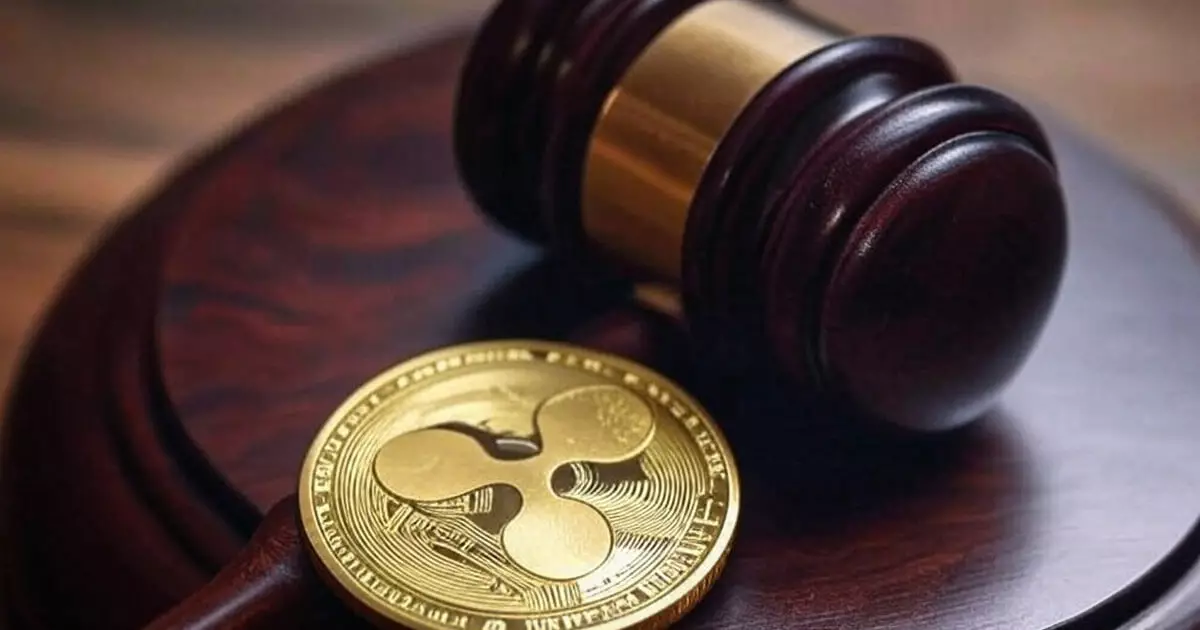The recent proposed settlement between Ripple Labs, its executives, and the U.S. Securities and Exchange Commission (SEC) has sent seismic waves through the cryptocurrency community. After years of legal wrangling over whether Ripple’s XRP should be classified as a security, the SEC’s decision to settle for a mere $50 million, despite having previously sought far greater penalties, raises significant questions about the regulatory landscape in the crypto space. This unexpected move seems less about achieving justice and more about appeasing a divided regulatory framework that has struggled to make sense of rapidly evolving digital assets.
The SEC’s actions have been called into question for years. Critics argue that the agency’s approach has often been inconsistent, leaving crypto projects in limbo and subjecting them to a patchwork of enforcement actions without clear guidance. By suddenly opting to settle—rather than pursuing the case to its bitter end—the SEC appears to be prioritizing expediency over clarity, creating a disturbing precedent. Is this merely a pragmatic move to recuperate some funding from Ripple, or does it reflect a deeper admission of the limitations of current regulatory frameworks?
Ripple’s Tactical Maneuvering
Ripple’s leadership, especially CEO Brad Garlinghouse, has continually asserted that their operations were in compliance with existing regulations. This settlement can be interpreted as both a tactical retreat and a strategic pivot. By agreeing to pay a relatively small penalty, Ripple not only sidesteps the protracted legal battle but also positions itself to continue its crucial work in the blockchain arena without further distractions. With other cryptocurrencies looking to Ripple’s trajectory as a potential roadmap for navigating their regulatory challenges, the implications of this settlement are far-reaching.
Yet, one cannot ignore the ethical implications of such a quick resolution. It begs the question: are companies merely paying off regulatory bodies to avoid intense scrutiny? Shouldn’t such infractions be met with more severe consequences, particularly given the SEC’s initial stance that Ripple’s activities were tantamount to unregistered securities offerings? This settlement, despite its ostensibly positive outcome for Ripple, raises fundamental ethical concerns about the balance between regulation and innovation.
The Bigger Picture: Regulation vs. Innovation
The broader implications of the Ripple-SEC settlement cannot be overstated. As the U.S. continues to grapple with the regulation of cryptocurrencies, the inconsistent enforcement practices create a chilling effect on innovation. Startups and established companies alike are left guessing whether their projects will fall under regulatory scrutiny, thus hampering growth in an industry poised to redefine financial transactions and ownership of digital assets.
Furthermore, if the SEC were to continue allowing certain settlements that fail to establish clear definitions of what constitutes a security, it would send a contradictory signal to the market. Companies like Ripple might see short-term victory but at the expense of long-term market clarity. Investors and developers thrive on predictability; what they receive instead is a game riddled with uncertainties governed by the whims of regulatory bodies.
The Communication Gap: SEC and the Crypto Community
What’s truly alarming, however, is the persistent communication gap between regulators and the crypto community. The SEC’s recent actions seem reactive rather than proactive, indicating that it is playing catch-up in a digital landscape that is evolving faster than policy can accommodate. In failing to release clear, consistent regulations, the Commission effectively stifles the innovation it claims to support.
This settlement could mark a turning point, but only if those in power recognize the need for a new dialogue. Regulators must engage with industry players to establish clear communication lines and collaborative frameworks that can adapt to rapid technological advancements. If this does not happen, the crypto industry will continue to navigate an uncertain path, forever at odds with the very framework meant to protect it.
The Ripple settlement is not merely a legal resolution; it’s a multifaceted reflection of the ongoing struggle between innovation and regulatory constraints. As both the SEC and Ripple move forward, the stakes have never been higher, and the lessons learned from this landmark case will echo across the crypto landscape for years to come.

